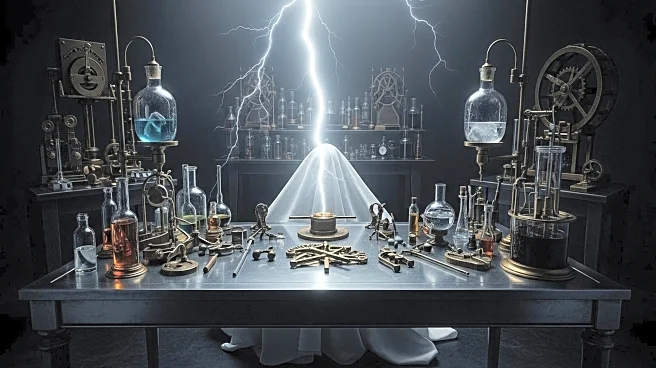What's Happening?
Guillermo del Toro's long-awaited adaptation of 'Frankenstein' has premiered, offering a visually stunning but overstuffed take on Mary Shelley's classic tale. The film, starring Oscar Isaac as Dr. Frankenstein and Jacob Elordi as the creature, explores themes of creation, existential crisis, and the nature of monstrosity. Del Toro's adaptation stays true to Shelley's intentions, presenting a nuanced portrayal of the creature's struggle for purpose and identity. Despite its visual grandeur, the film's lengthy runtime and complex narrative may challenge viewers, making it both captivating and unwieldy.
Why It's Important?
Del Toro's adaptation of 'Frankenstein' offers a fresh perspective on the classic tale, emphasizing themes of creation and existential crisis. The film's visual grandeur and attention to detail contribute to its appeal, showcasing del Toro's mastery of cinematic storytelling. By exploring the creature's struggle for identity, the film adds depth to the narrative, making it both engaging and thought-provoking. The adaptation's focus on the nature of monstrosity contributes to broader discussions on the impact of scientific ambition and the ethical implications of creation.
What's Next?
The film's release may spark discussions on the portrayal of classic tales in cinema, potentially influencing future adaptations. Del Toro's unique approach could inspire other filmmakers to explore similar themes, contributing to the evolution of horror and fantasy genres. The film's reception may impact its success in international markets and its potential for award nominations.
Beyond the Headlines
The film's exploration of creation and existential crisis may prompt viewers to reflect on their own understanding of identity and purpose. The narrative's focus on the nature of monstrosity could lead to broader discussions on the ethical implications of scientific ambition and the importance of responsible innovation.











